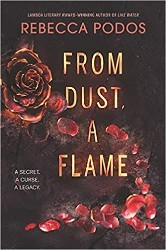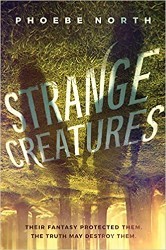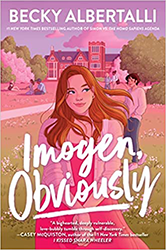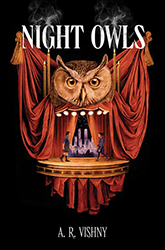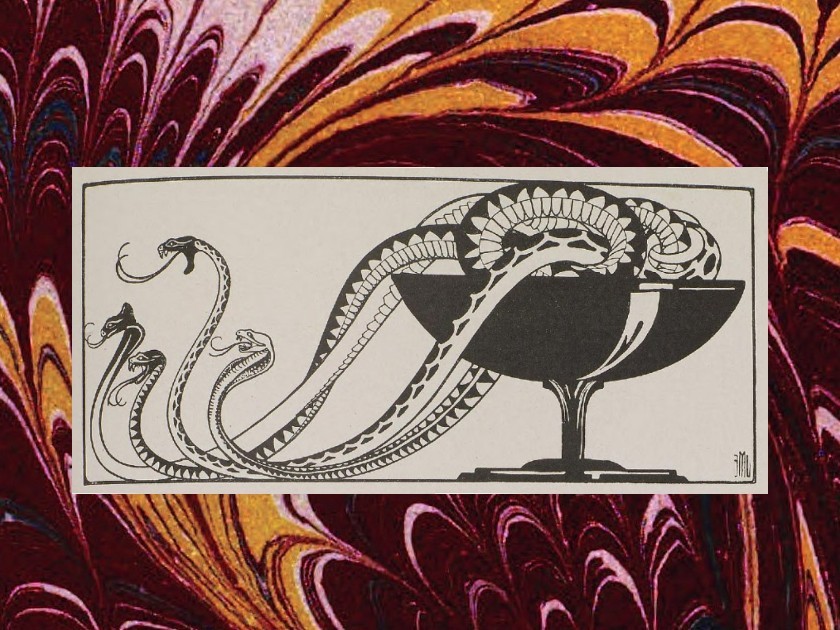
Snakes in the cup, Ephraim Moses Lilien, 1922; edited onto paper marbling
Far from purely escapist – though who couldn’t use a little escape? – the fantasy genre can be a wonderful tool for exploring culture and religion, faith and identity, the past and the present, all at once. While writing From Dust, a Flame, my forthcoming contemporary fantasy, I spent as much time researching the history of the Jewish Quarter in Prague as I spent deep-diving into Jewish folktales. Rituals of shiva and Shabbat preoccupied me as much as rituals for protection against shedim, the creation of golems. Given the powerful mythology of Judaism, it’s no wonder that today’s authors use fantasy elements to retell beloved Jewish stories, and to add elements of our own.
Here are a few Young Adult books, both recently published and upcoming, that delve into the particular magic of our people, as well as the monsters that haunt us.
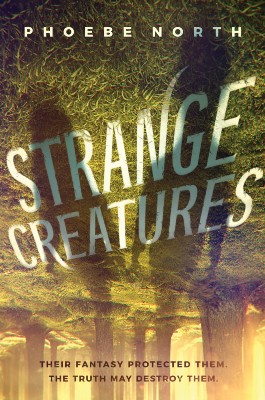
Strange Creatures by Phoebe North (out now)
Phoebe North’s Strange Creature is a contemporary light fantasy about grief, trauma, and the stories we tell ourselves in order to cope. Annie and her big brother, Jamie, were inseparable growing up, promising to always take care of one another. As an escape from the world and its gendered expectations of them, they imagined a world behind their house called Gumlea, a place full of fantastical creatures where nobody could find them.
Then Jamie disappears, devastating everyone who loves him. Only Annie holds onto hope as the years go by, believing that Jamie has somehow found his way into Gumlea, and that she can bring him back. In addition to queer representation, this story shows an interfaith family — Annie’s mother is Jewish, her father Catholic — an experience that will resonate with many readers today.
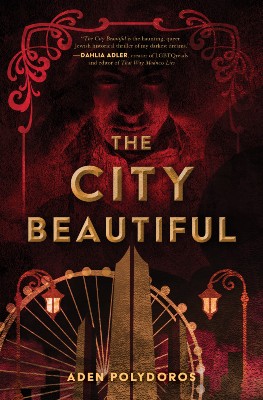
The City Beautiful by Aden Polydoros (out now)
In The City Beautiful, a queer historical fantasy with strong horror elements, Aden Polydoros takes us back to the World’s Columbian Exposition of 1893. Or rather, to its outskirts, where boys like Alter — a Romanian Jewish immigrant — are simply trying to survive. When his best friend falls victim to whomever has been murdering Jewish boys, Alter is possessed by his friend’s dybbuk.
Along with a boy from his past, who Alter has deep and dangerous feelings for, he must track down the killer before the killer finds him… or before the dybbuk takes over his body for good. With Polydoros’ next project announced, a YA second-world fantasy inspired by Slavic mythology, he is absolutely an author to watch.
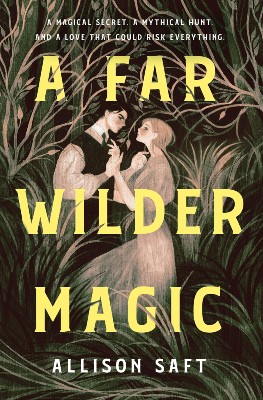
A Far Wilder Magic by Allison Saft (out 3/8/22)
Just because a story is second-world fantasy doesn’t mean it isn’t deeply Jewish. In Allison Saft’s sophomore novel, Margaret Welty may not be explicitly Jewish, but her people, the Yu’adir, are clearly cued as such; additionally, Weston Winters, the other half of this dual POV, is cued as Irish Catholic. The world they inhabit, New Albion, evokes 1920’s America, complete with a powerful Protestant-cued establishment. Set during a magical hunt for the last living mythical creature, Margaret and Weston must team up not only to win the hunt, but to confront the prejudice rife in their society in this fascinating book.
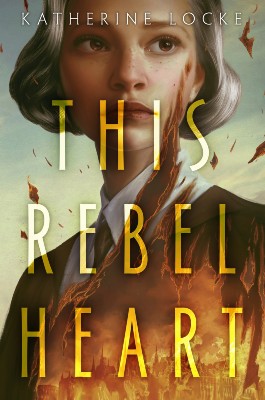
This Rebel Heart by Katherine Locke (available for preorder, out 4/5/22)
Locke’s previous entry in the Jewish fantasy genre was the Sydney Taylor Honor-winning Balloonmakers Duology. Next up is This Rebel Heart, a queer historical fantasy pitched as The Fountains of Silence meets Spinning Silver. Set during the 1956 Hungarian Revolution in post-WWII Budapest, This Rebel Heart follows Csilla, a girl desperate to leave the country she has always loved after the Communists seized power, and her parents were murdered by the Soviet police.
This also means leaving behind the magic river that used to keep her family safe. But when her parents are unexpectedly exonerated and talk of revolution begins to grow, Csilla has to weigh the love that remains in her heart for her country — and the magic that remains there — against leaving and letting it all burn behind her. The story explores a moment in time that’s less known, and themes that will be familiar to many Jewish readers.
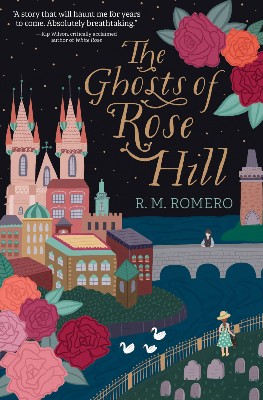
The Ghosts of Rose Hill by R. M. Romero (available for preorder, out 5/3/22)
I loved R. M. Romero’s debut, The Dollmaker of Krakow, and I’m wildly excited for The Ghosts of Rose Hill. Ilana Lopez, a biracial Jewish girl and aspiring violinist, is sent to stay with her aunt in Prague. Her immigrant parents hope that witnessing her aunt’s life as an artist will persuade her to choose a safer career. Instead, Ilana finds a city full of magic, ghosts (like the long-dead boy who haunts the Jewish cemetery behind her aunt’s cottage), and something much darker. Promising the lyrical language, lush setting, and fairy tale quality Romero delivered in her first book, this novel-in-verse is one not to miss.
Rebecca Podos is the Lambda Literary Award-winning author of YA novels, including The Mystery of Hollow Places, Like Water, and The Wise and the Wicked, and co-editor of the YA anthology Fools in Love. Find her online at www.rebeccapodos.com.
